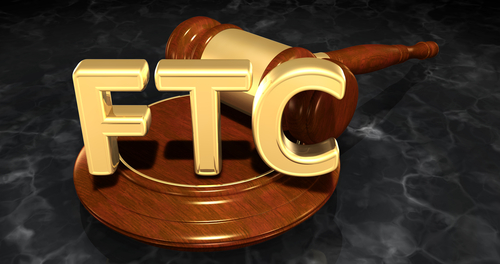Overruling its own precedent, 7th Circuit curbs FTC's ability to obtain restitution

Photo image from Shutterstock.
The Chicago-based 7th U.S. Circuit Court of Appeals on Wednesday ruled that the Federal Trade Commission did not have the authority to seek restitution from fraudsters by invoking a section of its governing law that allows it to obtain injunctions.
The decision by the 7th Circuit overturns a 1989 decision by the appeal court and conflicts with decisions from eight other circuits, Courthouse News Service reports.
Writing at the Volokh Conspiracy, Notre Dame law professor Samuel Bray describes the decision as “very significant.”
At issue was whether Section 13(b) of the Federal Trade Commission Act, which authorizes injunctions, also allows the commission to obtain restitution.
A different section of the law authorizes restitution, but it has additional requirements, Bray explains. “So the FTC naturally wants to use the injunction provision to get restitution, and it has been allowed to do that by the federal courts for decades,” Bray writes.
In a decision by Judge Diane Sykes, the 7th Circuit said the appeals court had endorsed a “starkly atextual interpretation” when it allowed restitution under the injunction provision in its 1989 decision, FTC v. Amy Travel Service.
Sykes said Amy Travel must be overruled because its approach is not consistent with a later Supreme Court decision. The 1996 Supreme Court case, Meghrig v. KFC Western, held that the Resource Conservation and Recovery Act doesn’t allow private parties suing over hazardous waste to recover cleanup costs.
The 7th Circuit ruled in an appeal by Credit Bureau Center, a website that offered a “free” credit report and score. The center had disclosed only in small text that customers who applied for its free information were automatically enrolled in its credit monitoring service for $29.94 a month.
A judge issued an injunction and ordered more than $5 million in restitution. The 7th Circuit affirmed the injunction but not the restitution order.
Because the 7th Circuit opinion overruled precedent, a local court rule required it to circulate its opinion to all the circuit judges before publication. A majority did not vote to rehear the case en banc.
Chief Judge Diane Wood dissented from the refusal to rehear the case in a decision joined by two other judges.
“To my knowledge, no court has ever tied the hands of a government agency in the way that the majority has done here, and the majority cites none,” Wood wrote.
An FTC spokesperson issued this statement after the decision: “We are disappointed by this decision, and we are evaluating our options. The FTC’s ability to recover money for consumers is an essential and long-established tool in our enforcement arsenal.”
The case is Federal Trade Commission v. Credit Bureau Center.
Story updated at 1:25 p.m. to include FTC statement.



